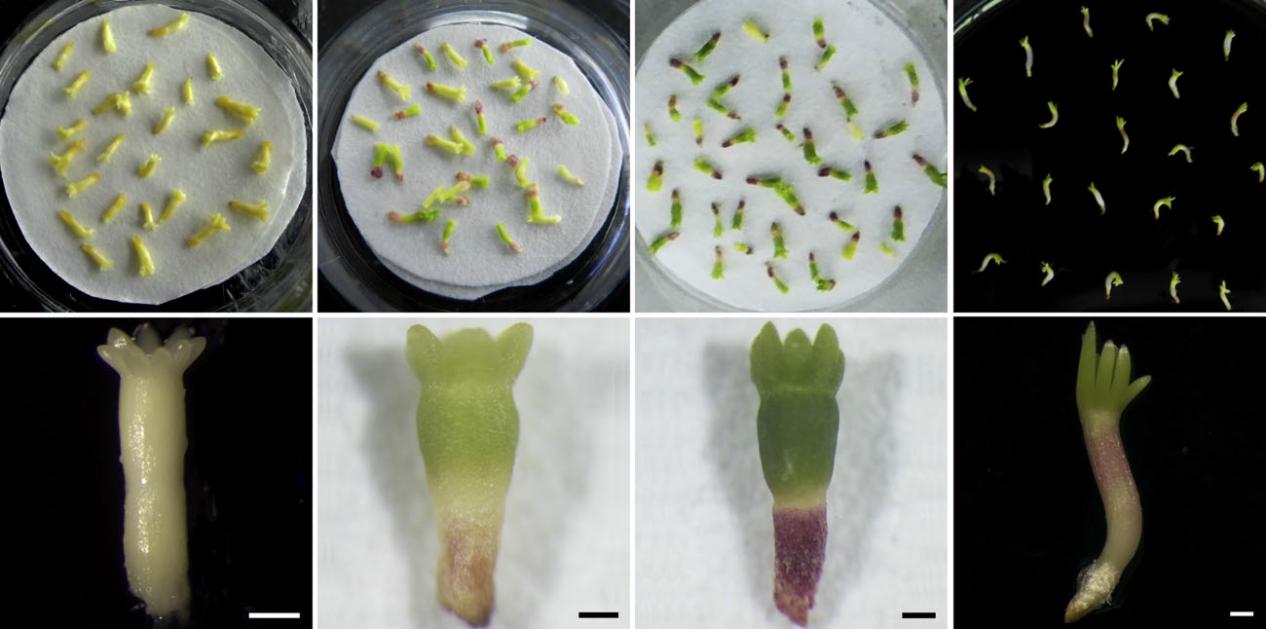
Effects of partial desiccation treatment (PDT) on the morphology of P. asperata somatic embryos. (a) and (e) Embryos before PDT were light yellowish on day 0 (D0) without colour change. (b) and (f) Embryos under PDT for 7 days (D7) had green cotyledons, green hypocotyls and red radicles. (c) and (g) Embryos under PDT for 14 days (D14) had dark green cotyledons, dark green hypocotyls and red radicles. (d) and (h) Embryos in germination medium on day 1 after PDT for 7 days (G1) showed growth of cotyledons and elongation of radicles and hypocotyls. All scale bar, 500 lm.
Summary
Partial desiccation treatment (PDT) stimulates germination and enhances the conversion of conifer somatic embryos. To better understand the mechanisms underlying the responses of somatic embryos to PDT, we used proteomic and physiological analyses to investigate these responses during PDT in Picea asperata. Comparative proteomic analysis revealed that, during PDT, stress-related proteins were mainly involved in osmosis, endogenous hormones, antioxidative proteins, molecular chaperones and defence-related proteins. Compared with those in cotyledonary embryos before PDT, these stress-related proteins remained at high levels on days 7 (D7) and 14 (D14) of PDT. The proteins that differentially accumulated in the somatic embryos on D7 were mapped to stress and/or stimuli. They may also be involved in the glyoxylate cycle and the chitin metabolic process. The most significant difference in the differentially accumulated proteins occurred in the metabolic pathways of photosynthesis on D14. Furthermore, in accordance with the changes in stress-related proteins, analyses of changes in water content, abscisic acid, indoleacetic acid and H2O2 levels in the embryos indicated that PDT is involved in water-deficit tolerance and affects endogenous hormones. Our results provide insight into the mechanisms responsible for the transition from morphologically mature to physiologically mature somatic embryos during the PDT process in P. Asperata.
Keywords:
Picea asperata, somatic embryo, partial desiccation treatment, proteomics, stress-related protein.
The paper link:
http://onlinelibrary.wiley.com/doi/10.1111/pbi.12588/full


